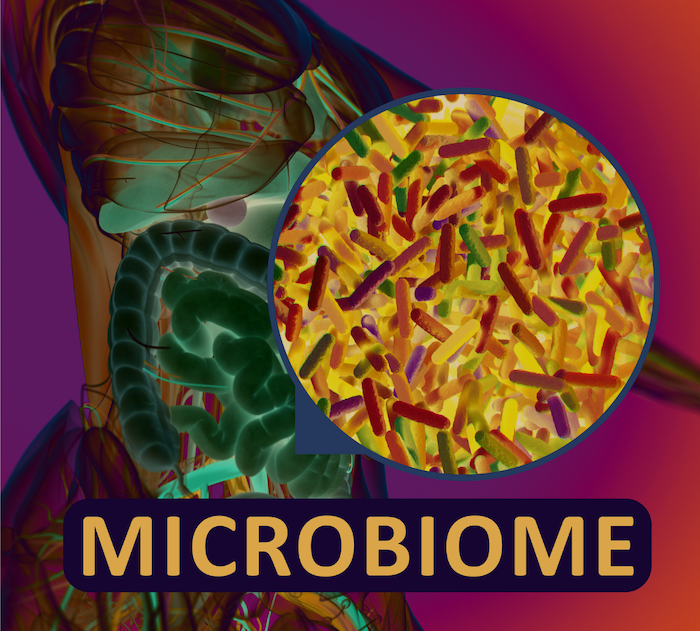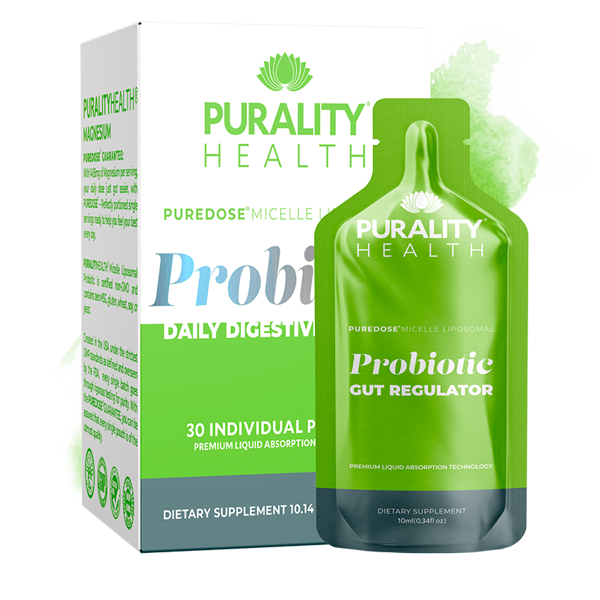Imagine a secret world inside your belly, filled with countless invisible beings working hard to keep you healthy. This hidden world is called the gut microbiome, and it’s a lot like your body’s personal superhero team.
So, what is this gut microbiome, and why is it so important? Well, it’s like a bustling city of tiny microorganisms that live in your digestive system. These microorganisms include bacteria, viruses, and fungi, and they play a huge role in how your body works.
Why should we care about this tiny city? Because it does a lot for us! It helps with digestion, makes essential vitamins, and even affects our mood. But one of its most amazing jobs is keeping our immune system strong.
 The microbiome and immunity…
The microbiome and immunity…
You see, your immune system is like a shield that defends your body from harmful invaders like germs. And guess what? Your gut microbiome is like the secret weapon that helps power up that shield. It does this in several cool ways.
First, these friendly microorganisms in your gut help train your immune system to recognize the good guys from the bad guys. It’s like giving your immune system a lesson on who to attack and who to leave alone.
Second, they produce substances that can stop bad germs from growing. Think of it as the gut microbiome making poisonous gas for the bad guys while leaving the good guys unharmed.
Lastly, they help keep the lining of your gut healthy. A strong gut lining means fewer germs can sneak through and cause trouble in your body.
But not all of the bacteria in your microbiome are the same. In fact, some do more for your immunity than others…
Enter L. Rhamnosus
Lactobacillus Rhamnosus is one of the most well-studied probiotic strains out there. And when it comes to immunity, it’s one of the best.
On top of immunity, it offers several other health benefits, including:
- Digestive Health: L. rhamnosus can help maintain a healthy balance of beneficial bacteria in the gut, which may aid in digestion and alleviate symptoms of gastrointestinal issues like diarrhea and irritable bowel syndrome (IBS).
- Allergy Management: Some studies suggest that L. rhamnosus could be beneficial in managing allergies, particularly in reducing the risk of allergic reactions in infants and children.
- Vaginal Health: L. rhamnosus may help maintain a balanced vaginal microbiome, potentially reducing the risk of vaginal infections, such as bacterial vaginosis and yeast infections.
- Skin Health: Emerging research indicates that L. rhamnosus may contribute to improved skin health by reducing the severity of conditions like eczema.
- Weight Management: While more research is needed, some studies suggest that L. rhamnosus could play a role in weight management by influencing gut bacteria associated with obesity.
- Mental Health: There is ongoing research into the potential connection between gut health and mental health. L. rhamnosus may have a role in supporting emotional well-being.
But for this blog, we’re going to focus on the research surrounding L. rhamnosus and immunity. Below are four studies proving that L. rhamnosus benefits your immune system in amazing ways.
Study #1 – Increases “type-1 immune responsiveness”
 Type-1 immune responsiveness refers to a specific way the immune system responds to threats like infections or foreign invaders. It’s characterized by a strong and effective immune response that typically involves:
Type-1 immune responsiveness refers to a specific way the immune system responds to threats like infections or foreign invaders. It’s characterized by a strong and effective immune response that typically involves:
- Enhanced Antigen Presentation: Antigen-presenting cells (like dendritic cells) become more effective at capturing, processing, and presenting foreign substances (antigens) to other immune cells, which helps in recognizing and attacking the invaders.
- Promotion of Cellular Immunity: Type-1 responses are often associated with cellular immunity, where immune cells work together to directly target and eliminate infected or abnormal cells, such as virus-infected cells or cancer cells.
- Activation of Killer Cells: The immune system activates cells like cytotoxic T cells and natural killer cells, which are specialized in directly attacking and destroying infected or abnormal cells.
- Production of Pro-Inflammatory Cytokines: Type-1 immune responses lead to the production of pro-inflammatory molecules called cytokines, such as interferon-gamma (IFN-γ) and interleukin-2 (IL-2). These cytokines help regulate and strengthen the immune response.
In essence, a type-1 immune response is like a robust and focused defense mechanism that the body uses to combat infections and deal with various threats efficiently. It plays a crucial role in protecting the body against pathogens and maintaining overall health.
One study from 2016, published in Nature – one of the most prestigious scientific journals – showed that a substance produced by L. rhamnosus within the body strengthened this crucial type of immune response, especially when paired with the bacteria itself. [1]
This means L. rhamnosus helps your body build a robust and efficient immune response to threats that would normally make you sick and unhealthy.
Study #2 – Bolsters respiratory immune response
 Researchers have been aware for quite some time that L. rhamnosus helps bolster the immune system, but they weren’t fully sure how. In this next study, they focused on the respiratory system and focused on what happened to mice when given this probiotic strain. [2]
Researchers have been aware for quite some time that L. rhamnosus helps bolster the immune system, but they weren’t fully sure how. In this next study, they focused on the respiratory system and focused on what happened to mice when given this probiotic strain. [2]
Let’s take a look:
Background: Some previous studies have suggested that probiotics, specifically a type called Lactobacillus rhamnosus, might have a positive effect on certain respiratory infections caused by bacteria and viruses. However, these studies didn’t explain how probiotics actually help the body defend against respiratory viruses.
Results: In this new study, researchers wanted to understand how L. rhamnosus works against respiratory infections. They did experiments on mice to find out. Here’s what happened…
- Increased Immune Proteins: When they gave the mice L. rhamnosus probiotics by mouth, they noticed higher levels of specific immune proteins called IFN-γ, IL-10, and IL-6 in the mice’s respiratory tract (like their lungs). These proteins are important for the immune system’s response to infections.
- Boosted Immune Cells: The probiotics also increased the number of special immune cells called CD3+CD4+IFN-γ+ T cells in the mice’s lungs. These cells are like soldiers that fight off infections.
- Mimicking Lung Inflammation: To see how the probiotics work during a lung infection, they used a substance called poly(I:C) to make the mice’s lungs act like they had a viral infection. This caused lung problems and inflammation, similar to what happens during a real viral infection.
- Reduced Lung Injuries: When the mice got the L. rhamnosus probiotics before the lung problems, it helped reduce the lung injuries. It also lowered the production of certain inflammation-causing molecules like TNF-α, IL-6, IL-8, and MCP-1 in the respiratory tract.
- Increased Anti-Inflammatory Proteins: The probiotics also increased the levels of the anti-inflammatory protein IL-10 in the lungs and blood of the mice.
- Boosted Immune Cells and Proteins: After the lung problems, the probiotics increased the levels of IFN-γ and the number of immune cells that produce it in the mice’s lungs. It also increased the number of certain immune cells called dendritic cells, which help fight infections, and made them produce more important immune proteins.
Conclusions: The results of this study suggest that L. rhamnosus can help improve the body’s defense against respiratory infections. They do this by increasing the levels of important immune proteins and cells in the respiratory tract. This study shows that L. rhamnosus could be used as a preventive treatment to control respiratory virus infections in the future.
Study #3 – Makes our immune system stronger
 This next study from 2018 shows how L. rhamnosus shapes our immune system into a stronger, more flexible system. [3]
This next study from 2018 shows how L. rhamnosus shapes our immune system into a stronger, more flexible system. [3]
Let’s break this study down:
What They Studied: In this study, scientists wanted to understand how something made by L. rhamnosus (called LSM) affects special immune cells called dendritic cells (DCs) and the immune responses they trigger. They were interested in whether LSM could make our immune system better at protecting us or being more tolerant.
What They Did: They took white blood cells from healthy donors and turned them into dendritic cells. Then, they exposed these dendritic cells to LSM or regular bacteria stuff for six days. After that, they made these dendritic cells more mature and active. They looked at how these dendritic cells behaved and how they influenced T cells, which are other important immune cells.
What They Found: LSM didn’t change the number of dendritic cells or how mature they became. But, when they used these dendritic cells to activate T cells with certain triggers, the T cells became more active. They made more important immune proteins, like IL-2 and IFN-γ. These T cells also showed signs of being more tolerant, which is a good thing for the immune system. This didn’t happen when they used dendritic cells treated with the regular bacteria stuff. There were a bit more activated T cells too.
Conclusion: This study shows that LSM can affect how dendritic cells work, which in turn changes how T cells respond. This suggests that LSM – a by-product of L. rhamnosus – might help shape our immune system, similar to live probiotics. Not only does this help strengthen your immune system, but it could be useful when live bacteria can’t be used due to health issues.
Study #4 – Calms inflammation and balances the immune response
 A big consequence of an unhealthy immune system is chronic inflammation. This can cause a host of issues, eventually even leading to disease. Thankfully, research shows that L. rhamnosus can also help you here. [4]
A big consequence of an unhealthy immune system is chronic inflammation. This can cause a host of issues, eventually even leading to disease. Thankfully, research shows that L. rhamnosus can also help you here. [4]
Let’s take a look at this study from 2021:
Background: The gut’s microbial community (microbiota) plays a crucial role in our immune system, helping it stay balanced. Probiotics, like Lactobacillus rhamnosus, can change the makeup of this gut microbiota. In this study, researchers looked at how L. rhamnosus affects the immune system in mice, both when they’re healthy and when they have inflammation.
What They Found:
- In Healthy Mice: When they gave L. rhamnosus to healthy mice, it boosted their immune system. It made certain immune cells, like natural killer (NK) cells and macrophages, more active and better at fighting off germs. It also increased the levels of immune proteins like TNF-α and IL-10 in their bodies. These changes were good for the mice’s immune systems.
- In Inflamed Mice: When they gave L. rhamnosus to mice with inflammation caused by something called lipopolysaccharide (LPS), it helped calm down the inflammation. It balanced out the immune response, making it less aggressive. This was seen by changes in the levels of immune cells and proteins. It also improved gut health by changing the types of microbes living in the gut.
Conclusion: So, in simple terms, this study found that L. rhamnosus, a probiotic, can boost the immune system in healthy mice and calm down inflammation in mice with problems. It does this by changing the gut’s microbial community and by adjusting the balance of certain immune proteins. This suggests that it might be helpful for maintaining a balanced and healthy immune system, depending on the situation. But, more research is needed to be sure.
Let’s review…
The four studies above all show that your body THRIVES when it has the probiotic strain L. rhamnosus alive and well in your body.
 Study #1 showed that L. rhamnosus helps your body enhance its most powerful immune response.
Study #1 showed that L. rhamnosus helps your body enhance its most powerful immune response.
Study #2 displayed how exactly the probiotic supports immunity within the lungs (where many illnesses originate) – by increasing immune cells and proteins. It also showed the best protection when L. rhamnosus was already in the body before infection.
Study #3 found that a natural by-product of L. rhamnosus strengthened and activated certain immune cells if present through the production of these cells. This means that having L. rhamnosus present in the body at all times helps your body tailor a sharper and more efficient immune system.
Study #4 showed once again that L. rhamnosus bolsters the immune system, but also that it calms inflammation within the body, helping to regulate the immune system for a more leveled and appropriate response. This helps deter chronic inflammation, a precursor to several types of health issues.
But what none of these studies covered is that commercial probiotics (like those you’d buy in the grocery store) are essentially useless.
Probiotics are fragile and are often destroyed in the manufacturing process. Then, if they do make it to the point of consumption, they face new problems.
